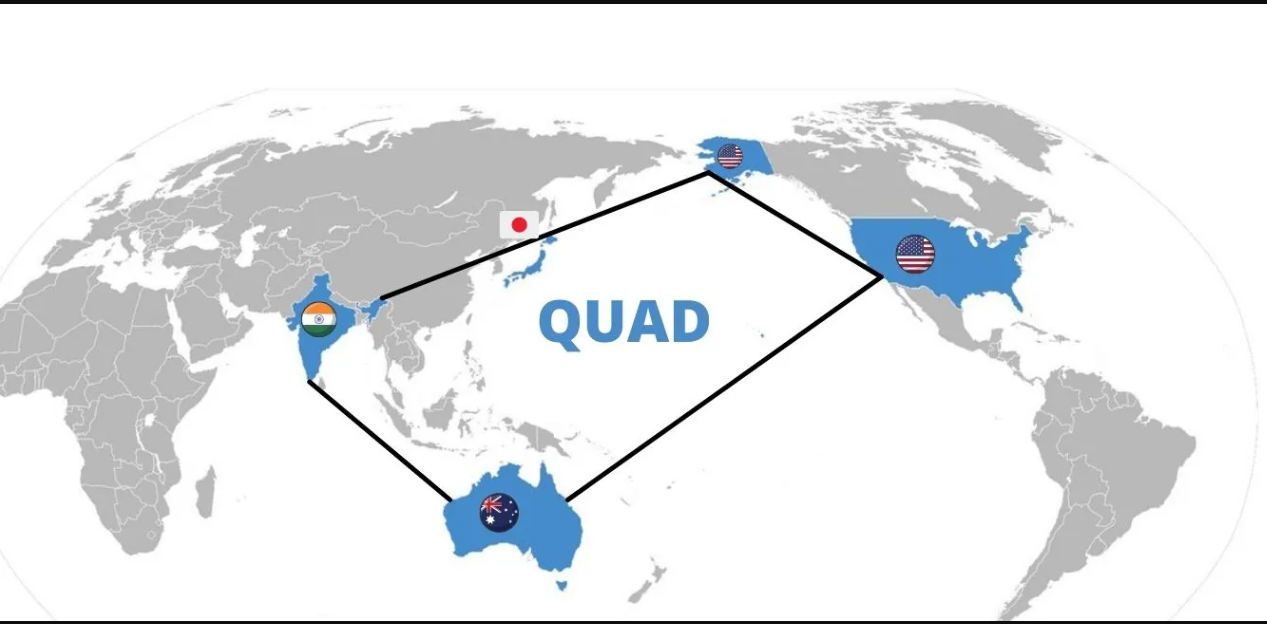Liu Chang, Assistant Research Fellow, Department for American Studies, CIIS
May 30, 2022
Lacking concrete detail, the framework is burdened by great uncertainty. Moreover, the United States seems to be sending a decoupling signal to China — a questionable strategy. If the U.S. continues along this line, it will be hard to win confidence and cooperation from countries in the Indo-Pacific region.
Earl Carr, Founder and Chief Executive Officer at CJPA Global Advisors
James Hinote, Geopolitical Strategist
May 26, 2022
Geopolitical risk, sanctions, and covid in China are redefining how we think about the future of global supply chains. Nations must start considering how to better secure their supply chains through regional trade partnerships, reshoring essential manufacturing capabilities, and sourcing goods from multiple nations and regions.

Zainab Zaheer, Development Consultant
May 20, 2022
Besides tackling COVID-19 and climate change, a unifying force within the Quadrilateral Security Dialogue is undoubtedly the member countries’ response to China. As the May Quad summit is underway, analysts must assess both how the Quad will react to China as well as how China will respond to the Quad alliance.
Li Zheng, Assistant Research Processor, China Institutes of Contemporary International Relations
May 20, 2022
With the shadow of the Russia-Ukraine crisis looming in the background, America’s midterm elections will be a test of voters’ mood. Donald Trump’s sway over the Republican Party will be reinforced or repudiated. But economic factors may be the decisive factor.
Yang Wenjing, Research Professor, Institute of American Studies, CICIR
May 18, 2022
Views differ on what triggered the current conflict. But whatever the pros and cons of NATO expansion, the conclusion must be that China, not Russia, is the greater long-term, structural and potentially lethal challenger to America.
Yuan Ruichen, Research Assistant, Center for Southeast Asian Studies, Peking University
May 18, 2022
The $150 million packages are a good start for America’s regional vision, but what the U.S. does next will be decisive. In Southeast Asia, actions always speak louder than words.

Zhang Yun, Professor, School of International Relations, Nanjing University
May 18, 2022
Judging the summit from an American perspective would be misleading. Rather, it must be scrutinized from the ASEAN point of view. From that position, the summit can be seen as beneficial not only to ASEAN but to all state-to-state relations in the region.
Wu Zurong, Research Fellow, China Foundation for Int'l Studies
May 12, 2022
Differences over the rules for world affairs will not be resolved easily and won’t be resolved in favor the U.S. Countries are interdependent, and a divided world serves no one’s best interests.

An Gang, Adjunct Fellow, Center for International Security and Strategy, Tsinghua University
May 11, 2022
The Ukraine crisis has demolished many boundaries. It was out of control from the beginning, since Russia, Ukraine and the U.S. are all unwilling or unable to compromise. Time will tell, though it may not indicate which side to take.

Yang Wenjing, Research Professor, Institute of American Studies, CICIR
May 04, 2022
China is gaining influence for a reason: Its approach is helpful — and this irritates the United States. But the Solomon Islands is a sovereign country and as such is entitled to develop security relationships as it sees fit.
Back to Top

- China-US Focus builds trust and understanding between the U.S. and China through open dialogue among thought leaders.
- Our Offerings
- Topics
- Videos
- Podcasts
- Columnists
- Research Reports
- Focus Digest
- Stay Connected
-
Thanks for signing up!
- Get the latest stories from China-US Focus weekly.